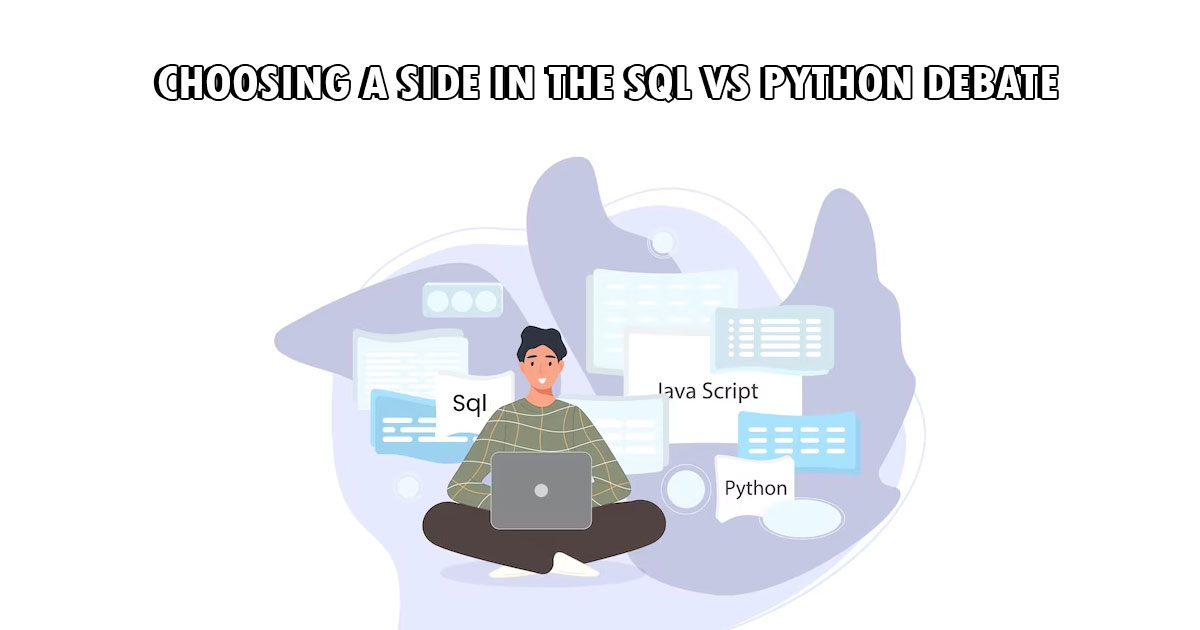Working with data involves a whole host of coding languages, database structures, and various tech stacks. One of the core debates is over which is better, SQL vs Python, related to data transformation. In this article, we seek to settle that debate by offering straightforward comparisons between the two and weighing up the core functions of each.
SQL vs Python
To properly compare the differences between SQL and Python we need to look at the various factors in detail. The following list will compare the usual factors that are taken into account during the comparison and debate. Running through these will help you consider the benefits, and the issues, of both.
Performance
When running extensive computations you’ll find that Python is slower in most situations, while SQL will deliver faster performance when working on aggregations and simple queries. Looking at SQL, the data within the database is the reason behind the quicker speed thanks to the defined schema. Plus the computations themselves can happen close to the data, on the flip side, Python needs to extract and load the data before any exploration can take place.
Functionality
Thanks to an expansive third-party library collection, Python boasts far more functionality than SQL. The collection within the community means that Python can flexibly work within machine learning, API creation, and data exploration. As SQL only has a small number of packages available with a focus on functionality, it founders in comparison. Many businesses are turning to outsource python development services to enhance their data processing capabilities
Testing
Every piece of code written should be extensively tested to ensure that it is bug-free, easy to maintain, and actually works as it was intended to. Built into the data processing pipeline, Python has a wide number of integration and unit tests. These tests can be used on anything from simple data queries, all the way to complex mathematical functions and machine learning models. Comparatively, SQL has nothing to offer in testing.
Scalability
To facilitate scaling, SQL can easily add more or delete tables within the database, immediately scaling to the scope of the project. Many programming languages, such as Java, use multithreading to divide processes and improve increasing requests. Python, however, uses GIL (Global Interpreter Lock), which will not allow the language to perform multiple tasks at the same time. That, therefore, has an impact on both speed and scalability.
Use Cases
People who work within data science will find Python skills the best to have in their arsenal. Python will help with cleaning, exploration, and manipulation within their standard daily task remit. If instead, you would be working as an analyst or data engineer, SQL will certainly be a required skill set if you’re seeking to monitor ETL tasks, complete data modeling, or manage databases. Realistically, to perform at a high level, an understanding and skill set in both options are going to be required.
Ease of Use
SQL is far more beginner friendly than Python. Yes, Python is still a relatively easy language to learn, SQL simply has fewer concepts to master and is comparatively easier to learn.
Debugging
Thanks to the breakpoints within Python, bugs are much easier to debug. The breakpoints halt execution once a bug is encountered. SQL, on the other hand, splits its models into multiple files, which should help to debug, but when it executes everything happens concurrently without breakpoints. That makes the process harder.
Key Takeaways
There are certainly pros and cons to using either of the two systems. Python offers extensive functionality, useful testing and is relatively easy to learn for new engineers. SQL is far more scalable, performs better, and is very simple to learn, even compared to Python. If you want to learn any of these languages, ExamLabs can help with it. Deciding on the two will require a process of comparing potential use factors within your own project. Weigh up what is important to you, and complete an analysis using both systems before making a firm decision.
- Picking between SQL and Python is really down to the requirements of your project.
- If you’re considering learning a system, you’ll likely find SQL a simpler process.


